Alzheimer’s care - everything you need to know
Alzheimer's is a degenerative brain disease and the most common cause of dementia. It's progressive, so symptoms get more serious over time but with the right care and support, there's no reason you can't live a fulfilling life. In this guide, we run through what you need to know about Alzheimer's care for each stage of the condition.

Quick overview
Alzheimer’s disease is the most common cause of dementia. As a progressive disease that worsens over time – it’s categorised into three main stages: early, mid and late. The level of care differs depending on the stage.
There are various care options available – live-in care, assisted living, domiciliary care, and residential care are common options. There’s no one-size-fits-all solution here – it depends entirely on individual circumstances.
What is Alzheimer’s disease?
Dementia is a term used to describe a range of diseases that impact memory, cognitive abilities, and behaviour, making it difficult for individuals to maintain their daily activities. Alzheimer’s disease is the most common cause of dementia.
In 2019, research showed that there were over 850,000 people with dementia in the UK, and Alzheimer’s is the most common cause, representing 50-75% of all cases. Its recognisable name comes from Alois Alzheimer, the German psychiatrist and neuropathologist who first identified the condition.
Alzheimer’s can affect different parts of the brain but primarily impacts the hippocampus, the area responsible for our day-to-day memory.
It works to gradually degrade neurological capability by blocking connections between nerve cells with protein buildup in the form of amyloid plaques and tangles. As the connections between cells are lost, they die, and the brain tissue — and therefore function — dies with them.

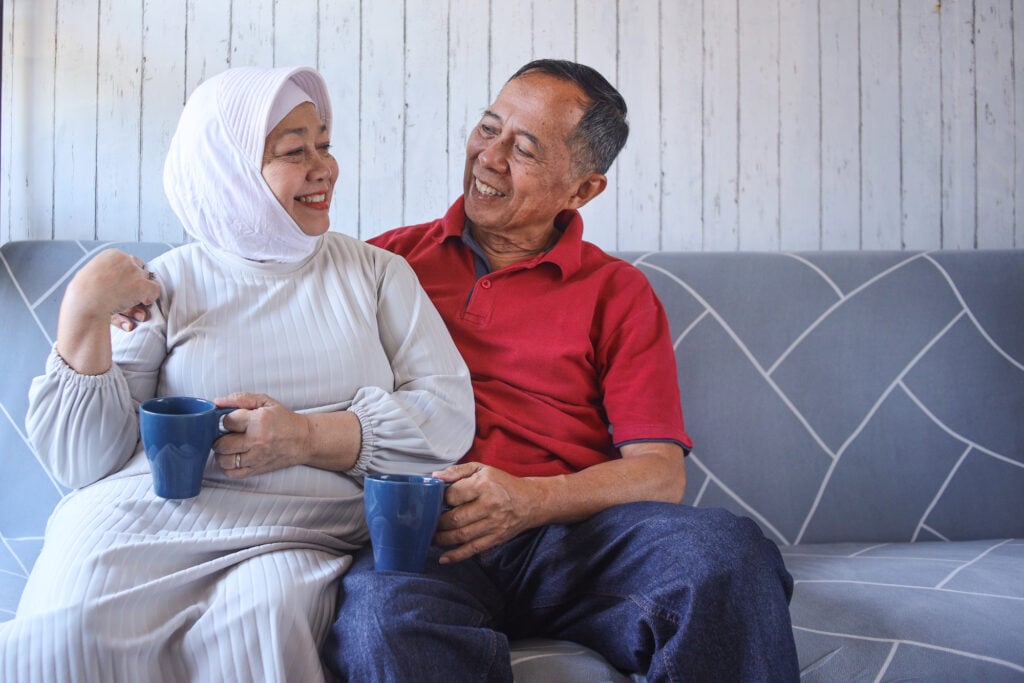
Alzheimer’s is a progressive disease, meaning it gets worse over time. And, for the time being, it’s incurable. Although, as we discussed with an expert from Oxford University here, there is a large research community working together to find a solution.
Despite all of this, living a happy and fulfilled life after a diagnosis is possible. And, even as the condition becomes more acute, you may still experience surprising and joy-filled moments of reconnection.
There’ll likely be ups and downs. But, by understanding what the future will bring and planning for all eventualities, you can jump the hurdles the disease puts in your way. This guide has been written to help you do just that.
Care options for those with Alzheimer’s
The best care option for you depends on your preferences and the stage you or your loved one is at. So let’s run through some of the available options.
Residential dementia care
According to Alzheimer’s Research UK, just 39% of those living with dementia are living in a care home. The remainder live in the community, using services such as live-in care.
The care home does have certain advantages, it’s easier to organise as local authorities are usually geared towards using them. This may make getting everything in place a little bit easier.
People with dementia with acute, late-stage symptoms may benefit from specialist facilities and a large on-site staff. Medically-led care services, such as a nursing home, mean your loved one will have a medical professional on-hand to help too.

Care home fees for people with Alzheimer’s
There are Alzheimer’s care homes designed particularly around the needs of a person with Alzheimer’s. However, they can be both difficult to find and expensive.
Generally, the amount you’ll spend on a residential care facility ranges widely from region to region. In 2023, on average a residential care home costs between £27,000 to £39,000, but this cost will rise when nursing care is needed.
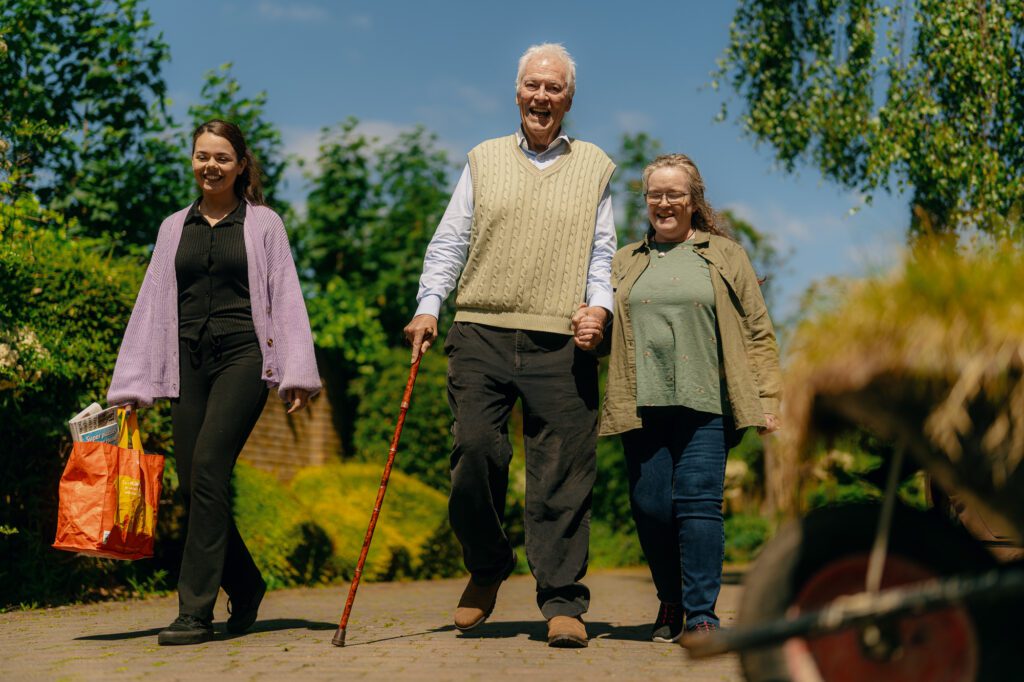
Alzheimer’s home care
Live-in care, the option provided by Elder, is where a carer with Alzheimer’s or dementia care experience moves into a spare room in the person’s home. Live-in carers do everything required to look after your loved one as the condition progresses. This ranges from light household support in the early stages to more intensive support in the later stages. The benefits of this include –
- Remain in the community– Keeping precious routines and supportive social networks. Staying socially active is increasingly linked with reducing the risk of cognitive decline and depression, especially for those living with Alzheimer’s.
- Getting out and about– Live-in care carries a 64% reduction in the likelihood of being housebound. This is linked to reduced physical and mental health problems and mortality.
- Keep pets and animals– An increasing body of research indicates that pets can be good for both mental and physical health.
- Tailored nutrition– Meals can be individually tailored to a person’s nutritional requirements. Diet is particularly important for those living with Alzheimer’s disease. There are a host of diets that may help delay the progression of certain symptoms.
- Keep the same GP– The close relationship between your loved one and their GP is not just reassuring. There’s increasing research to suggest this can reduce mortality rates. When you move to a care home, this relationship is put at risk. When you receive care in your own home, it’s guaranteed.
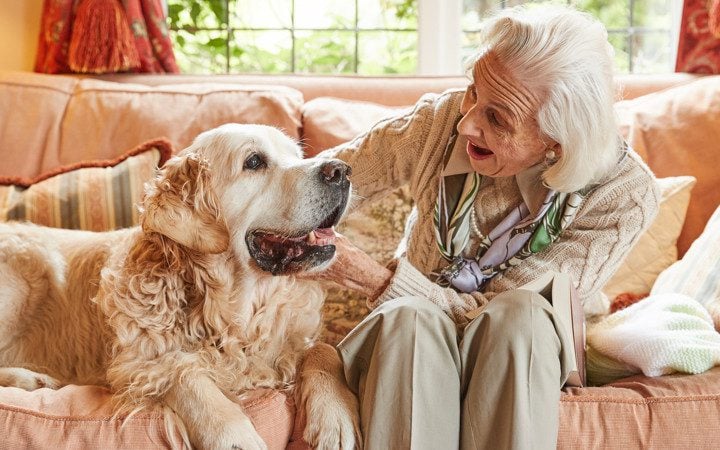
Early-stage Alzheimer’s care
In the earlier stages of the condition, it’s not usually necessary to have care in place. But it’s often a good time to start considering care options. You may notice your loved one increasingly struggles to cope.
As there is, unfortunately, no known cure for Alzheimer’s disease, your loved one’s symptoms, such as forgetfulness and lack of orientation, are likely to get worse over time. That makes this a prime time for planning ahead.
Get to understand the condition by seeking advice from your GP. There are also many well-informed charities, such as the Alzheimer’s Society, Dementia UK and Independent Age. They can help you understand the condition in more detail and help you plan how to adapt.
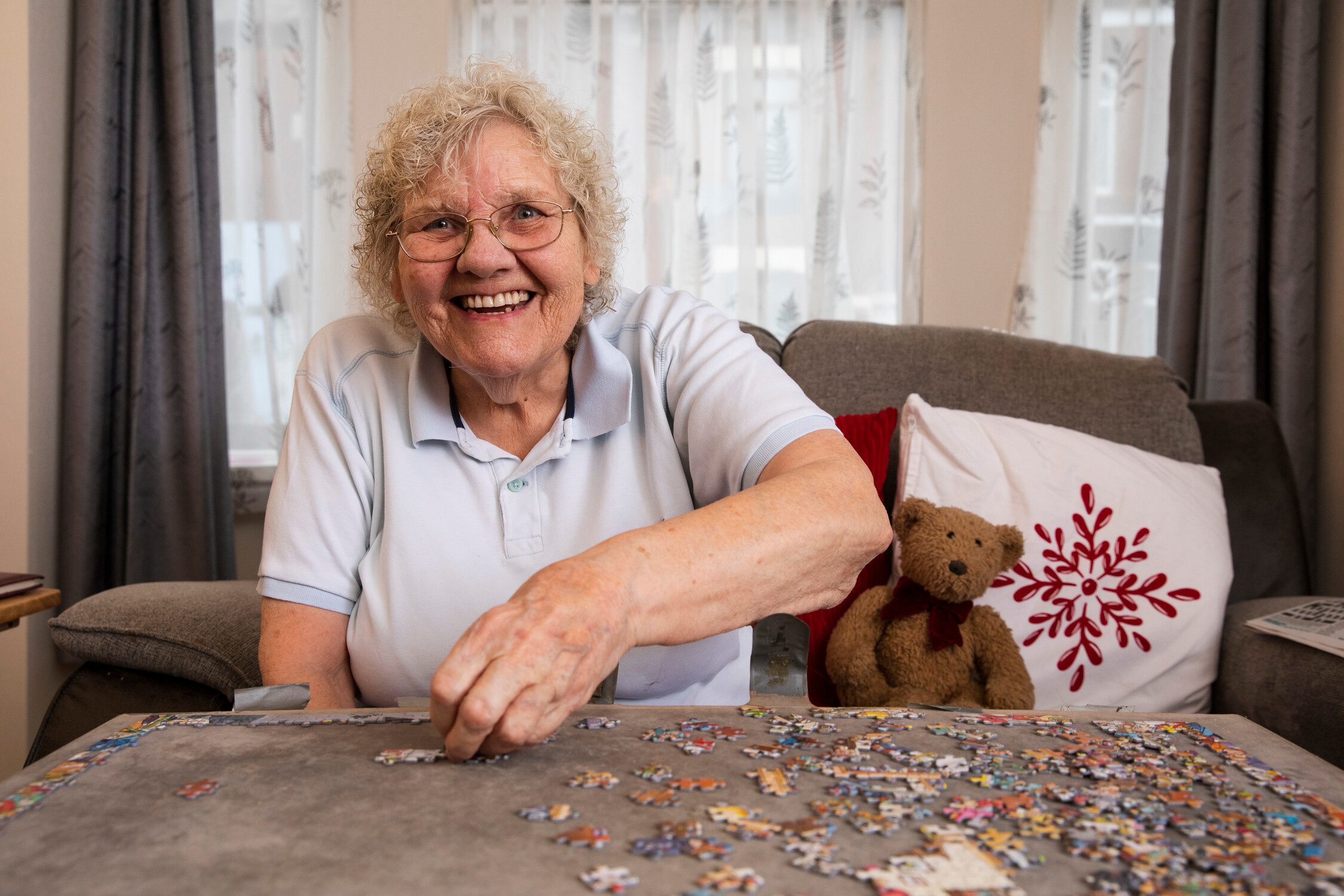
Caring for early stage Alzheimer’s
As we cover later in the guide, living well with any form of dementia is not just about potential drug treatments. It’s also about taking a holistic perspective towards wellbeing. There’s an increasing body of evidence to suggest that the following may help slow the onset:
Regular exercise — It doesn’t have to be intensive training. Keeping active can mean simply walking around the local park or neighbourhood. Or it could be going for a light weekly swim or doing simple yoga or tai chi exercises.
Staying sociable — Is increasingly linked with reducing the impact of memory loss and may slow neurological degeneration. Keeping current social networks or meeting new people by joining community clubs could help.
Mental activity — Challenging your brain regularly may help reduce cognitive decline, slowing the impact of Alzheimer’s Disease. From reading the morning paper, completing puzzles such as crosswords or sudoku, to doing arts and crafts.
Middle-stage Alzheimer’s care
When it comes to care, this stage is all about being adaptable, calm and patient with increasingly difficult circumstances. This can severely impair someone’s ability to remain independent, making them increasingly reliant on someone helping them.
For family carers, the middle stages can spell the start of frequent personal care requirements. These are generally characterised by support with washing, dressing, and occasionally toileting – although this can vary significantly from person to person.
If you’re looking after a loved one, you may start to notice individual quirks related to their cognitive decline. In response, you’ll likely have developed strategies to cope.
However, with the support and advice from a medical professional or GP, the middle stages are often the best time to put a professional carer in the home.This’ll allow your loved one to begin to accept them into their routine for the more acute stages in the future. That aside, they can simply be a great support, offering lots of practical help.
- Household tasks– At this point in the progression of Alzheimer’s it’s likely a person will be less able to undertake those all-important daily household tasks necessary to keeping the home is a safe and comfortable environment to be in.
- Preventing wandering– As symptoms become more acute, it can become unsafe to leave your loved one by themselves. They may begin to wander around, seemingly aimlessly, which can be a danger to themselves and others. A live-in carer is able to help prevent this from happening, or gently guide them back to a safe place if it does.
- Relieving loneliness– Loneliness among the elderly can be as damaging to health as smoking 15 cigarettes per day. This can lead to depression, which is likely to accelerate the onset of symptoms. A carer can spark conversation and over time, may even become a friend.
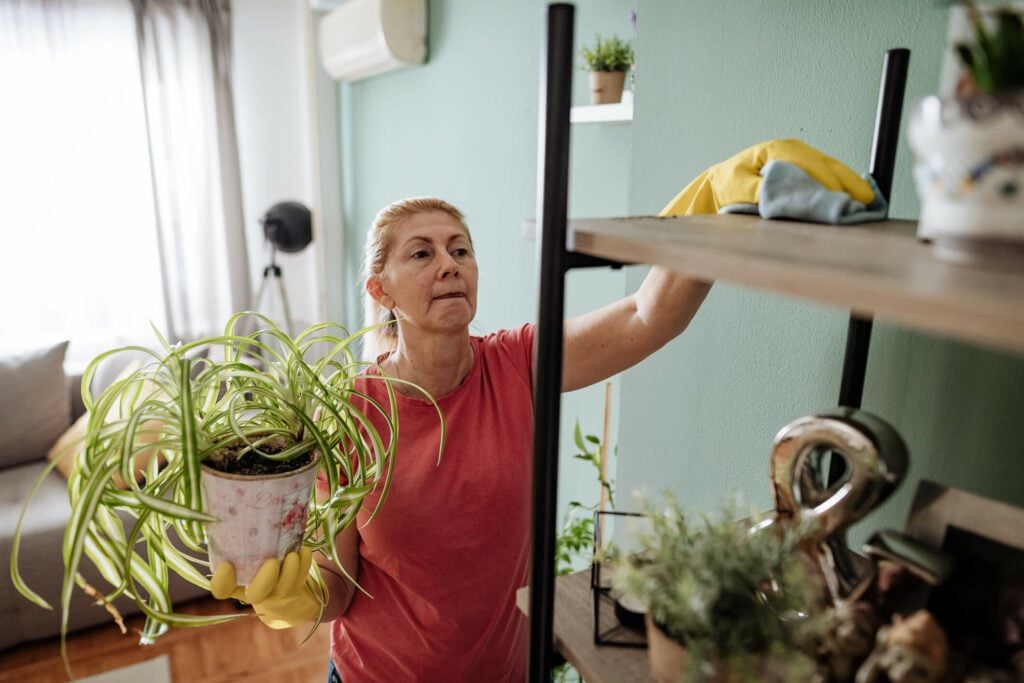

- Driving them to where they need to be– If your loved one’s condition has deteriorated to the extent they’re unable to drive around safely on their own, this is something a carer can do. It can be a vital way to ensure social occasions and routines are met — particularly vital for those who live in rural areas. It can also be important to have someone there who can remind them about appointments and ensure they get there on time.
- Supporting with activities– A large body of research indicates that mental stimulation can help reduce the onset of Alzheimer’s symptoms. A live-in carer is able to help promote valuable hobbies, interests and activities. This could be everything from board games and jigsaw puzzles to cooking together and spending time in the garden.
- Continence support– At middle-stage Alzheimer’s, it’s unlikely that someone will need constant support with toileting. However, intermittently and increasingly, they may experienced trouble going to the toilet. This can be for a number of reasons, including sensory impairment and losing their way. A carer can support someone to get to the loo or help clean up if they don’t quite manage it.
Pam Schweitzer, MBE on the power of reminiscence
One of the leading experts in the field of reminiscence therapy for over 30 years, Pam Schweitzer MBE is passionate about the positive effects of this work on older people and those with Alzheimer’s– focusing on triggering individual memories and the sharing of stories in reminiscence groups. We spoke to Pam about her work.
Late-stage Alzheimer’s care
As the symptoms become increasingly acute, so does the required level of care. The later stages can be identified by a steep deterioration in someone’s condition. This can be an incredibly distressing time and families shouldn’t have to cope with caring alone.
Realistically, even if you’ve held off on getting outside help up until this point, as the disease intensifies you should really assess getting support. A professional carer can help your loved one feel as comfortable, safe and supported as possible, and can also give you the time to enjoy their company as a relative, rather than a carer.
Here is a run-through of the kind of tasks your carer may undertake during the later stages of Alzheimer’s:
Eating and drinking
A vital component of late-stage Alzheimer’s care is ensuring the person being cared for is sufficiently fed. As a person becomes less mobile, the amount of food required is reduced. However, it’s still vital they’re well-sustained and enjoy their favourite meals as much as possible.
During the later stages of Alzheimer’s, the following could be required to support healthy eating and drinking.
- The right posture– This is all about helping your loved one to sit in a position in which they’re able to easily digest food. It’s often recommended that they sit upright for 30 minutes after meals, although this can be different depending on someone’s frailty.
- Tailored meals– With a live-in carer, meals can always be adapted to someone’s individual tastes. But at this stage of Alzheimer’s disease, they can be adapted to someone’s individual needs too. Usually, this means choosing softer foods that are easier to chew and swallow, as well as thickening any liquids that may present a choking risk. Sensory changes can also mean that certain foods may not taste the same.
-
Checking for weight loss– It’s not unusual for those in the later stages of advanced dementia to experience weight loss. However, this needs to be closely monitored to ensure it’s not a side effect of medication or even a sign there’s something else wrong.
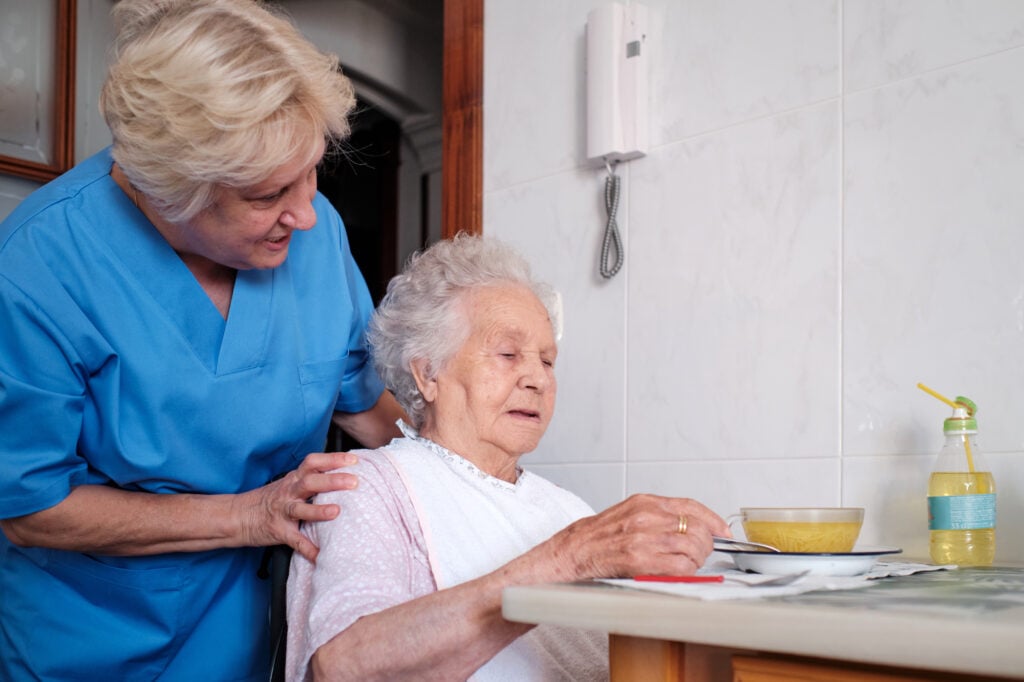
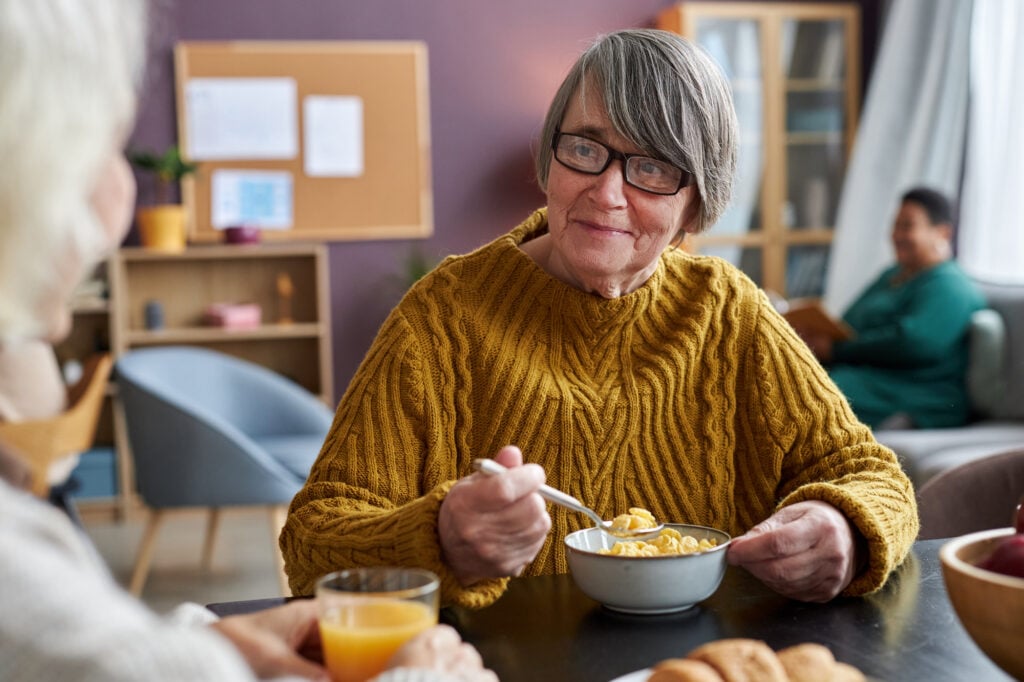
- Support with eating– As well as specific meals, someone living with symptoms of advanced dementia will likely need some help with feeding. This may be gentle encouragement, such as putting a spoon into someone’s hand and then guiding it into their mouth. For those with more acute symptoms, this could be following each bite with fluids, reminding the person to chew and swallow, as well as making sure they’ve eaten everything.
- Promote hydration– Those with advanced dementia often will find it difficult to remember that they need to remain hydrated. This is of particular concern for older people, as they can become dehydrated more easily. They may also need someone there to ensure they’ve properly swallowed all of the fluid.
Continence care
Trouble toileting is likely to become an increasing problem. This is for a variety of reasons.
It may be that mobility issues prevent someone from reaching the loo in time, or it might be because sensual impairment stops someone from being able to feel they need to go. For some, it’s not being able to communicate to a carer that they need the toilet. And for others, issues with orientation can mean they’re unaware of where the toilet is.
- Tracking toileting– Sometimes, it might be useful for a carer to keep a written log of the intervals between toilet breaks. This can help them monitor and adjust to the person receiving care’s individual habits and needs.
- Checking fluids– As has already been noted, staying hydrated is more important for the elderly. However, it’s important for a carer to ensure fluids are being consumed at the right time of day. Too much to drink before bed can increase the risk of bladder incontinence at bedtime.
- Apply incontinence protection – Senior incontinence pads or a bedpan can help make nighttime incontinence a little easier. The carer will replace them when required to ensure your loved one is clean and comfortable.
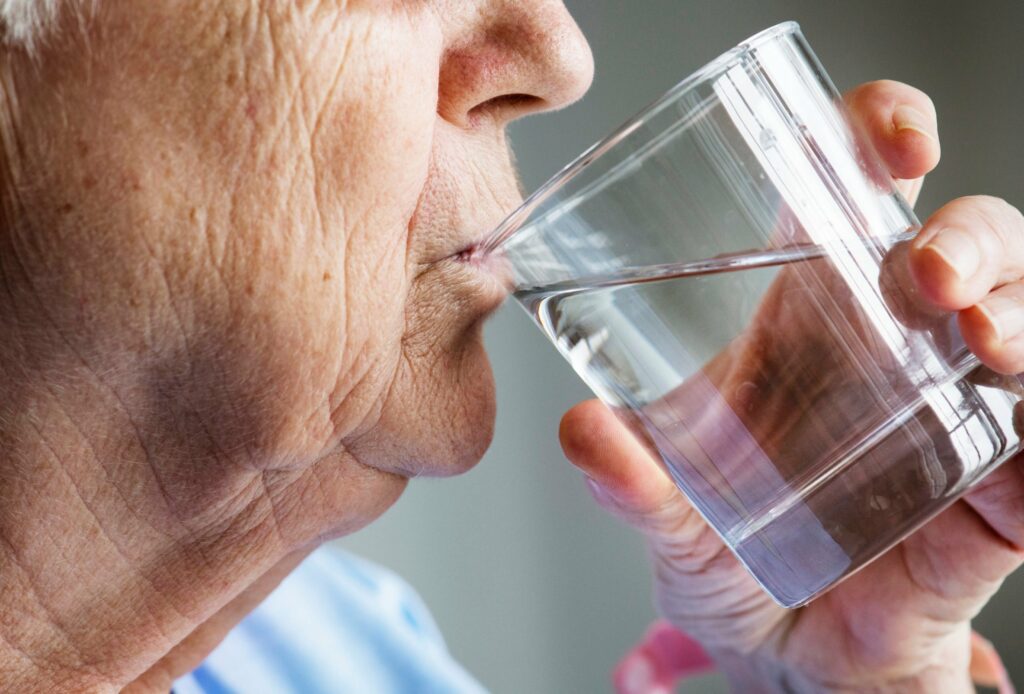
Bone and skin health
The less mobile a person with late-stage Alzheimer’s becomes, the increased likelihood that they’ll be bed or chair-bound. This can have significant implications for someone’s skin and bone health. Problems such as pressure sores, frozen joints and the deterioration of the skin are all fairly common for those living with Alzheimer’s.
If these aren’t kept on top of, they can lead to a serious deterioration in someone’s health. Luckily, a carer is able to spot the signs and help relieve some of these symptoms. Here’s some of the things they can do:

- Reducing spot pressure – When a person remains in the same position for a long period of time, the pressure on a weakened body can restrict circulation. A carer is able to move someone’s position at regular enough intervals to stop this from happening, making them comfortable in a new position with pillows and supports.
- Gentle cleaning – The skin of an elderly person in the later stages of Alzheimer’s disease may tear more easily than before. This requires a more gentle approach to hygiene. The person receiving care should be treated more delicately and milder soaps should be used. The carer can also use it as an opportunity to check for rashes and sores.
- Handling with care – With frail bones and the aforementioned risk of skin tears, ease of injury is increased. This is especially true when it comes to moving someone from one position or place to another. A carer should have a good understanding of the best practices when it comes to ensuring the risk of injury is reduced.
Helping to prevent infections
Staying sedentary increases the likelihood of contracting things like flu. Reducing risk is about taking a more holistic approach to avoiding infection.
- Oral health– Keeping the teeth and mouth of someone living with late-stage Alzheimer’s clean is essential to help prevent infection. That means after every meal. And, because teeth can be more brittle with age, a softer, less abrasive toothbrush is ideal. Gum health is equally important.
- Monitoring small cuts – When someone is frail, small cuts are a likely occurrence. A carer is able to identify, clean and cover minor cuts, applying antibacterial creams, such as Savlon, as appropriate. Although, if these are deep, medical attention should be sought and it’s likely an ambulance should be called.

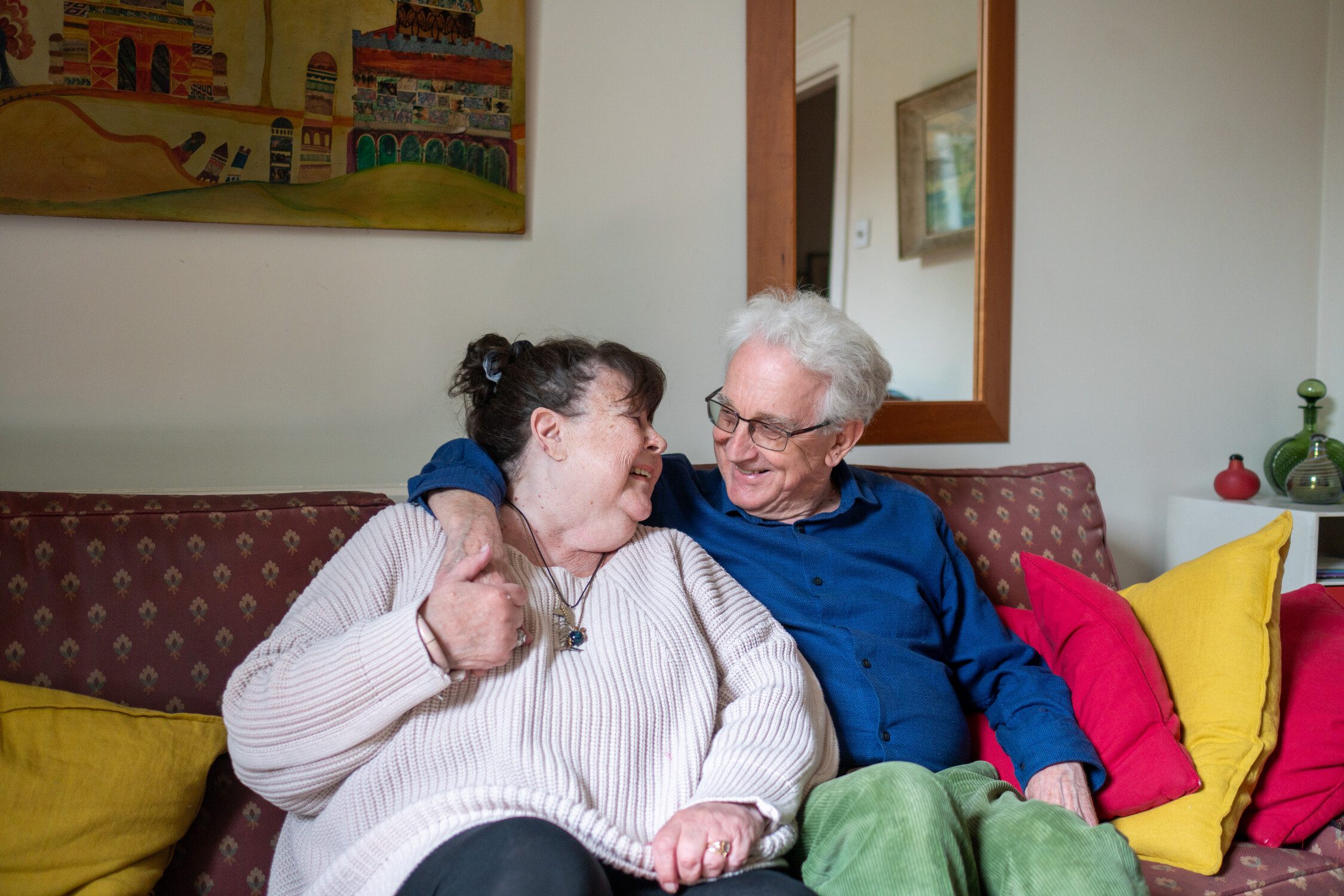
Making life more comfortable
As people in the later stages are more prone to infection, bumps and cuts, they may occasionally feel pain. However, this can be an issue if they’re unable to communicate that this is the case. It takes a carer with experience to understand when a person is feeling pain. They can do this by:
- Recognising changing moods– Although it might not be easy for someone to let a carer know they’re feeling discomfort, a change in mood or behaviour could be a sign. A live-in carer may look for signs of a person becoming increasingly agitated, anxious, or even aggressive. Difficulty keeping a regular sleeping pattern can also be a sign of changes in mood.
- Recognising physical distress– Someone doesn’t have to actively tell you they’re in pain to communicate they’re in distress. Things like pale skin and gums and shaking can be indicators.
- Recognising ‘nonverbal’ signs– Other ways someone may indicate they’re in pain include warnings such as pained — or wincing — facial expressions, screeches and screams.
Palliative Alzheimer’s care
‘Palliative’ can be a bit of a confusing word. In short, it just means support for someone with a terminal illness. It’s a necessary step for someone with Alzheimer’s when symptoms have begun to deteriorate to the point in which they can no longer cope alone.
Palliative care may be needed for a few weeks, months or years.
End-of-life care
This differs from palliative care because it’s focused on those final stages of someone’s life. It’s usually additional to any long-term support you may have put in place from a live-in carer.
What community support is available?
Charities, such as Age UK can arrange visits to your home to help you to maintain your social contacts and pursue your hobbies and interests. In some areas, trained befrienders can provide regular friendly companionship for people with dementia.
Alzheimer’s UK has a tool to help you find local support services, such as advocacy and social groups, daycares or other support services to make life easier in your local area. They also provide community support services that will assess your needs, help you find ways to stay active in your local community and match you with someone who can help you with social activities and other practical support.
Live-in Care support
Having a live-in carer to support someone with Alzheimer’s can allow them to stay in the comfort of their own home but be supported by a professional companion 24/7 who has experience caring for people with Alzheimer’s and dementia. Live-in care takes the pressure off looking after a loved one as you’ll have a professional carer who can help take off some of the load.
Finding live-in care with Elder will allow you to handpick a great companion from a choice of thousands of fully-vetted and approved carers. We’ll help you find the proper care – whether you need emergency care in the next 24 hours or are planning ahead, we can help you take control. Our support specialists and clinical team are here to listen, guide, and empower seven days a week.
Peggy’s Alzheimer’s story
“‘Peggy, our Mum – a generous, humorous octogenarian started to decline with Alzheimer related issues in Lockdown 1, resulting in a decision to engage live-in care in Jan 2021. After a few mixed results, we engaged Elder who proposed Denise to us in June 2021 and she has been with us ever since as a key member of ‘Team Peggy’.”
Read more about Alzhiemer's disease
From early signs, to treatment and leading a fulfilling life, we’ve covered the essentials below.
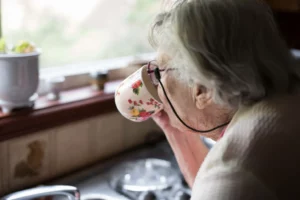
Types of dementia
Common types of dementia Every dementia journey is different, and not everyone will experience the same symptoms. However, understanding the different types of dementia and

Early stage Alzheimer’s | living with and caring for symptoms
Early-stage Alzheimer’s symptoms – what are they? In the early stages, the impact on someone’s ability to live an independent life is minimal. It’s unlikely

Activity ideas for people with dementia & Alzheimer’s
Activity ideas for people with dementia & Alzheimer’s Being diagnosed with dementia and Alzheimer’s doesn’t mean independent living has to stop, and you don’t have

Treatment for dementia
Treatment for dementia While there’s no cure yet, there are a range of treatments for dementia that can help with symptoms, and improve quality